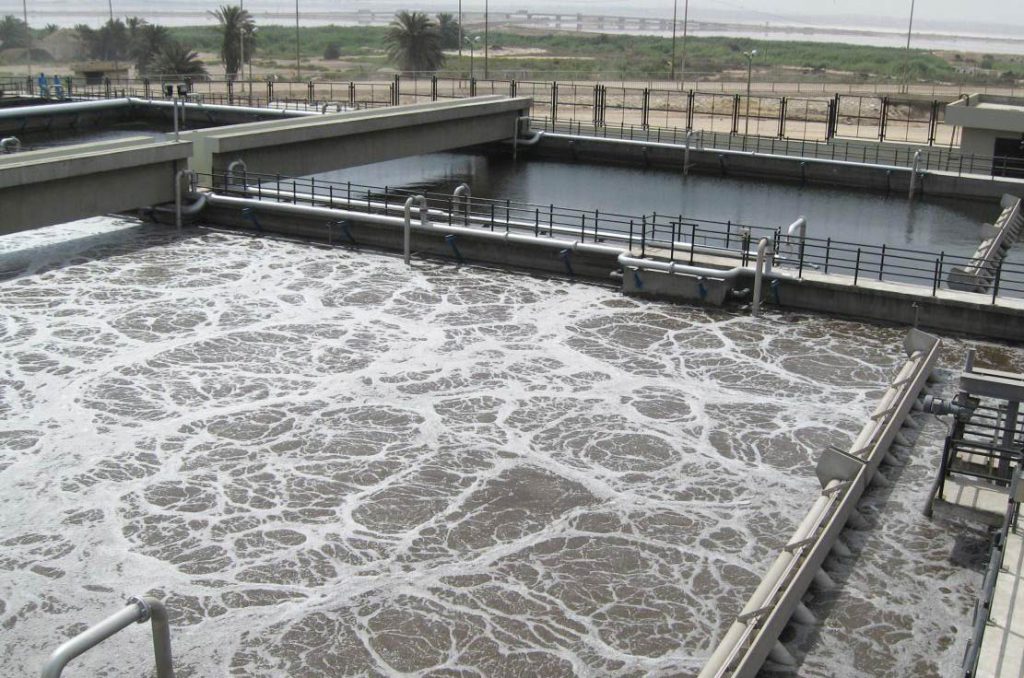Wastewater treatment of textile and dyeing industries
In textile wastewater treatment, we must deal with a wide range of wastewater pollutants such as highly stable and non-biodegradable organic substances and pesticides used in certain textiles such as insect repellent fabrics. The textile industry is considered as a water-intensive industry, because it uses large amounts of water for the dyeing, finishing and washing processes. Textile wastewater has a variable and complex mixture of pollutants such as inorganic compounds, polymers, organic products and dyes. Textile wastewater can be treated using biological treatment processes, chemical precipitation, surface adsorption, electrocoagulation (PECR-V1 advanced treatment packages) and membrane technology. In the following, the effective methods of textile and dyeing wastewater treatment are described.
The reasons for the importance of wastewater treatment in textile and dyeing industries:
The colored compounds used in textile and dyeing industry wastewater have Complex compounds of organic and mineral substances. Most of these compounds belong to the group of compounds resistant to decomposition, heavy metals such as chromium and lead, toxic substances and destroy natural microorganisms in water.
Carcinogenic compounds such as benzene and its derivatives, amine and nitro compounds are also observed in the waste water of textile and dyeing industries.
Therefore, before the discharge of this type of wastewater to acceptable sources in the environment, it is necessary to carry out processes to treat the wastewater of these industries.
characteristics of textile and dyeing wastewater:
The textile industry is one of the most consuming industrial sectors and therefore releases a large volume of wastewater. The strength of textile wastewater is determined by the amount of strong dyes, chemicals and auxiliaries (used in the dye dissolution process), which limit light absorption and severely damage aquatic ecosystems. In addition, this type of wastewater has a significant concentration of organic matter, nutrients, resistant compounds, high salinity, heavy metals and variable PH. The composition of textile wastewater mainly depends on the type of fabric, dyeing process and chemicals/auxiliaries used during dyeing. Based on their functionality, dyes are classified into acid, base, direct, disperse, metallic, reactive, sulfur, etc.
| characteristic | Characteristics of textile industries wastewater |
| PH | 5.5-9 |
| COD | 850-14000 |
| BOD5 | 400-5300 |
| TSS | 220-750 |
| TKN | 10-40 |
Important pollutants in wastewater of textile and dyeing industries
Important and significant pollutants in textile and dyeing industries can be classified as follows:
- Natural pollutants (beef, …) oils and greases on cotton and wool fibers
- Chemicals added or separated in various processes
- Short fiber piles separated from the main fibers and textiles in various toxic mechanical chemical processes
Wastewater treatment methods of textile and dyeing industries:
Wastewater treatment of textile and dyeing industries has special complications in the treatment process among all types of industrial wastewater. Various physical, chemical and biological methods have been used to treat textile wastewater containing polyacrylic fibers in different countries, some of them have been very successful in treating textile wastewater containing wool and cotton natural fibers, but one of the major problems of these methods is the need to PH control and its regulation and precise injection of coagulant chemicals are in the primary purification process. The use of coagulant materials for the pretreatment of textile and dyeing wastewater has problems in terms of accuracy in management and the cost of managing the system.
One of the problems of this method is the production of settled sludge in a large volume. Also, the deposited sludge cannot be disposed of easily due to the presence of coagulant residues and must be transported and discharged by the waste management organization to designated places. Second, the cost of injecting chemicals into sewage is also very high. There are several physicochemical technologies, chemical electors such as the advanced electrochemical PECR and biological purification system to remove dyes depending on their concentration and bioavailability. In general, physicochemical methods and advanced electrochemical PECR purification system are effective for removing dyes. In the following, the wastewater treatment process of these industries is described.
Textile wastewater treatment process:
Wastewater produced in the textile industry must be cleaned of fat, oil, dyes and other chemicals that are consumed during several stages of production. The textile wastewater treatment process depends on the type of wastewater (not every factory uses the same production method) and also on the volume of water consumed by the factory.
PASENCO Company uses three methods in textile wastewater treatment, which in addition to obtaining the necessary results for the recovery of used water, reduces the maintenance costs of the treatment plant system by up to 70% compared to other common methods in textile wastewater treatment. These methods are as follows in the order of wastewater entering each unit:
- Physical treatment
- Electrocoagulation treatment in textile wastewater treatment (PECR-V1 reactor)
- Biological treatment
- Sedimentation tank
- Chlorination
Design and production of needed equipment in wastewater treatment in textile and dyeing industries:
The textile and dyeing industry is one of the water-intensive industries, which requires appropriate wastewater treatment equipment at every stage of its treatment. By producing all kinds of wastewater treatment equipment and also producing PECR-V1 advanced treatment packages, Pajoohesh Sanat-e-Ab Company has been able to offer a wide range of equipment used in textile wastewater treatment with the best quality and the lowest price. Each of these equipments are designed and produced according to the world’s standards. The experts of this company are at the forefront of innovation in the wastewater treatment industry with the benefit of their expertise and commitment.
If you need free expert advice, you can communicate with our experts through the communication methods mentioned on this page.









